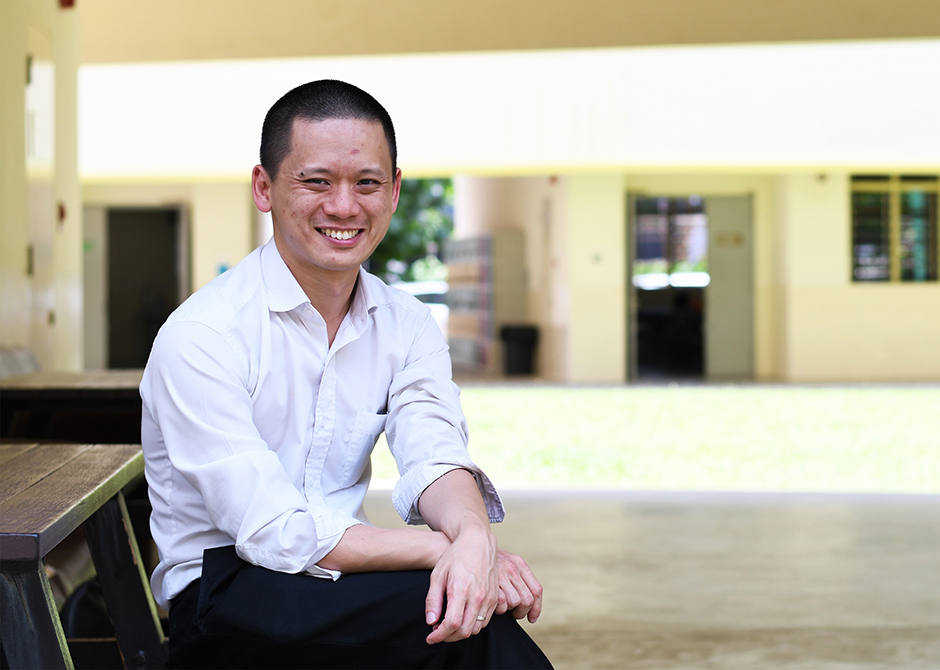I have a friend whose nine-year-old son does not get to watch much television or play video games. The boy has a packed schedule with enrichment classes for chess, drums, soccer, tennis and swimming.
The dad believes exposing his son to these activities is important for the child’s mental and physical development, but had to reduce their intensity because the boy was falling behind in school.
“I wish he could spend more time doing sports, but what is more important is that he gets enough rest,” says my friend. Some other parents do not think the same way.
They sign their offspring up for many enrichment classes, hoping to unearth their children’s true talents, even at the cost of the kids’ rest time.
My two children, who are now 19 and 21 respectively, have told me their primary and secondary school classmates were often bleary-eyed because of late nights from enrichment or tuition classes.
Is this the right way to help our kids discover their natural gifts?
When I was taking violin classes as an adult (from 2001 to 2022), I observed many tired and miserable kids at the music school. Some parents make their kids go through all eight grades of the ABRSM music examinations before their PSLE year. As a result, many of these kids grow up loathing music lessons and never play the piano or violin again after finishing their last music exam.
Of course, there are the exceptional ones who go on to become world-class musicians, but such success stories are few and far between.
Among some parents, the definition of talent can be both conventional and restrictive – playing a musical instrument, being good at ballet, excelling in a sport or taking part in a maths olympiad.
It’s rarer to hear parents boasting about how their child is good at reading or writing, at doing craftwork or putting mechanical things together.
Hang on while I work on my interests
It can take time to discover your biggest talent.
During my secondary school days, my friend Hanjin Tan was always training at the swimming pool before 6am. While he had talent for swimming and even represented our school in competitions, it was only later that he realised he had another talent — music.
He made the decision to drop swimming after secondary school and instead pursued his interest in singing and songwriting, despite the small market in Singapore and skeptical friends.
In 2009, he ventured to Hong Kong, where he found fame writing songs for the likes of pop star Jacky Cheung, and even held his own concerts.
In the same vein, many of us may not discover our talents until later in life.
I discovered only a few years ago that I had an aptitude for language translation, when my church pastor asked me to help do live sermon translations from Mandarin to English. I now do this about twice a month.
How parents can help their children discover their talents
I believe in a less stressful way of unearthing talent.
First, parents should give their children a lot of free time. How much free time is enough? I would suggest for every hour of studying, they should have another hour of playtime and personal exploration.
Second, they do need to expose their children to different experiences, but with a light touch. Introduce your children to as many different types of activities and events as possible, but let them decide if they want to spend more time on a particular activity.
Third, they need to support their children in their interests, no matter how unconventional.
I follow these three steps with my two children even now as they approach young adulthood.
My daughter Isabel has several gifts, like drawing and dancing.
The drawing talent runs in my family — I have it too — but I never trained her nor sent her for classes when she was a child as she was already drawing incessantly on any paper that she could find. This wasn’t because I did not care for her artistic development, but because I didn’t want to cramp her style as an artist.
Instead, I let Isabel develop her drawing skill by reading a wide variety of books on art and watching YouTube art tutorials.
Isabel is now taking A-level Art and is good enough to have been commissioned to do art pieces.
My wife and I also noticed that Isabel loved to dance as a toddler, so we sent her for ballet classes, which she enjoyed. But as Isabel grew up, she realised that she was not really cut out for ballet. She still loves dancing and joined the street dance CCA at her junior college.
Unlike Isabel, my son Isaac did not have distinct interests while growing up, but he was willing to try new things. We let him try out activities like martial arts and drawing. We later found out he showed interest in cooking. With some parental encouragement — and ok, some nagging — he tried his hand at cooking different recipes at home.
With the confidence and interest that he gained in the kitchen, he decided to pursue a Food and Beverage diploma at a polytechnic. Now, he is an assistant chef in a local restaurant.
I continue to encourage both of my kids to try new things on their own. If they show interest in particular subjects, I help them look for learning resources or put them in touch with experts.
My wife and I never wanted to burden our children with too many activities and we have always prioritised them getting enough sleep. They were always in bed by 930pm when they were in primary school.
While we recognise that it is important to nurture talent from young, discovering talent takes time and it cannot be forced.
Mr Ian Tan
What is more important is that parents do not let their personal experiences or desires create biases that prevent the talent of their children from taking root and flowering.
If you worry that your child is untalented, just relax. They may discover their aptitude later in life.
And even if they don’t, millions of people live a great life without being hailed as a talented genius. I believe it is more important to be healthy, contented and always learning new things.
Being able to live such a fruitful life is a talent in itself.




-(1)ae9179a7a8a66eb2afccc900c73e6f2e.jpg)

